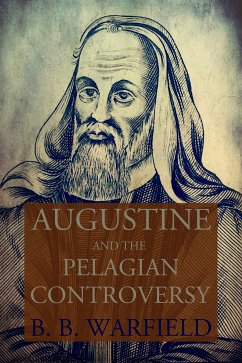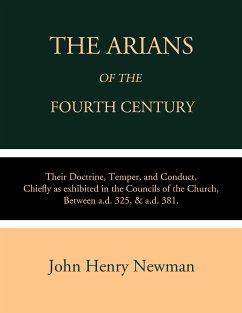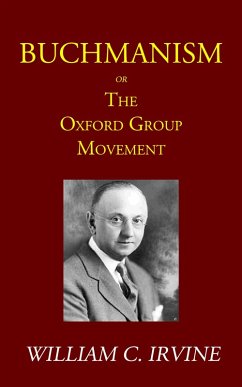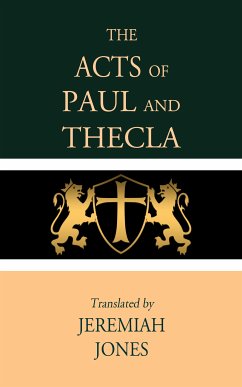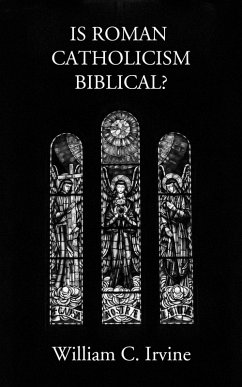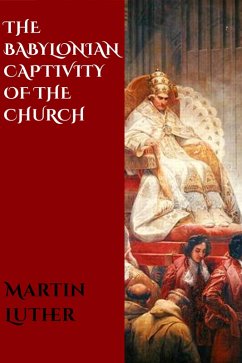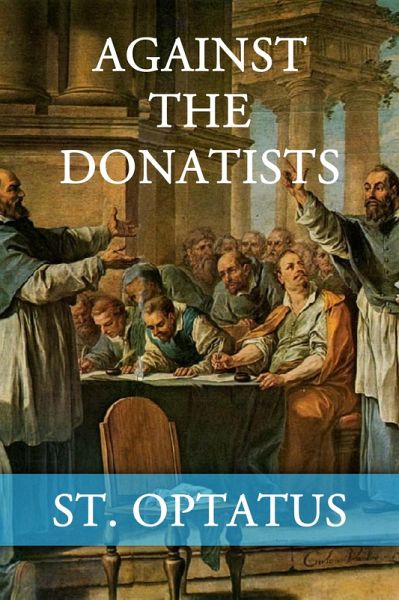
Against the Donatists (eBook, ePUB)

PAYBACK Punkte
0 °P sammeln!
St. Optatus, Bishop of Milevis in Africa, is perhaps the least known of all the Fathers of the Church. His treatise against the Donatists-the one work that he left to posterity, was translated into French in 1564. It is extremely improbable that, but for this exception, it has, until now, ever appeared in any language save Latin. It is quite certain that it has never yet been clothed in an English dress. There is indeed an advertisement still to be seen in The Oxford Library of the Fathers, in which it was announced (in 1848) that a translation of St. Optatus into English would 'soon' appear. ...
St. Optatus, Bishop of Milevis in Africa, is perhaps the least known of all the Fathers of the Church. His treatise against the Donatists-the one work that he left to posterity, was translated into French in 1564. It is extremely improbable that, but for this exception, it has, until now, ever appeared in any language save Latin. It is quite certain that it has never yet been clothed in an English dress. There is indeed an advertisement still to be seen in The Oxford Library of the Fathers, in which it was announced (in 1848) that a translation of St. Optatus into English would 'soon' appear. Sixty-eight years have elapsed; but this intention has not yet been carried into execution.
Until recently St. Optatus could hardly be found, even in the original Latin, anywhere but in the edition published by Du Pin at Antwerp in 1702, and subsequently incorporated by Migne. His work was until 1870 out of the reach of all persons who had not access to the largest libraries. In 1870-it is true-Fr. Hurter, S.J., published Du Pin's text in convenient form with short notes, and in 1893 a new critical edition was brought out (edited by the late Professor Ziwsa) in the Corpus Scriptorum Ecclesiasticorum, which has now for many years been in course of publication at Vienna. Comparatively few people, however, have heard of this excellent edition of the Latin Fathers; still fewer are aware that its volumes may be purchased separately, and that for the sum of a few shillings they may possess themselves of 'the Seven Books of St. Optatus concerning the Schism of the Donatists, against Parmenian.'
Indeed it is not too much to say that the very name of Optatus is barely known even to many students of theology and ecclesiastical history. Yet his is no mean name, and he cannot be ignored with safety, for he has bequeathed to the Church material of no small value, both to the theologian and the ecclesiastical historian. Optatus was held in high repute by the great Augustine, upon whom his influence was undoubtedly considerable. To this Harnack bears witness: 'Even when he entered into the Donatist controversy, Augustine did so as a man of the second or indeed the third generation. He therefore enjoyed the great advantage of having at his disposal a fund of conceptions and ideas already collected. In this sphere Optatus especially had worked before him.'
The work of St. Optatus is, therefore, of consequence not only from the point of view of history-he is the historian of Donatism in its origins-but also from that of doctrine-of 'conceptions and ideas.' It derives special importance from the fact that here we find the first sustained argument from the Catholic side not merely against heresy (false doctrine) but also against schism (separation from the Church).
Until recently St. Optatus could hardly be found, even in the original Latin, anywhere but in the edition published by Du Pin at Antwerp in 1702, and subsequently incorporated by Migne. His work was until 1870 out of the reach of all persons who had not access to the largest libraries. In 1870-it is true-Fr. Hurter, S.J., published Du Pin's text in convenient form with short notes, and in 1893 a new critical edition was brought out (edited by the late Professor Ziwsa) in the Corpus Scriptorum Ecclesiasticorum, which has now for many years been in course of publication at Vienna. Comparatively few people, however, have heard of this excellent edition of the Latin Fathers; still fewer are aware that its volumes may be purchased separately, and that for the sum of a few shillings they may possess themselves of 'the Seven Books of St. Optatus concerning the Schism of the Donatists, against Parmenian.'
Indeed it is not too much to say that the very name of Optatus is barely known even to many students of theology and ecclesiastical history. Yet his is no mean name, and he cannot be ignored with safety, for he has bequeathed to the Church material of no small value, both to the theologian and the ecclesiastical historian. Optatus was held in high repute by the great Augustine, upon whom his influence was undoubtedly considerable. To this Harnack bears witness: 'Even when he entered into the Donatist controversy, Augustine did so as a man of the second or indeed the third generation. He therefore enjoyed the great advantage of having at his disposal a fund of conceptions and ideas already collected. In this sphere Optatus especially had worked before him.'
The work of St. Optatus is, therefore, of consequence not only from the point of view of history-he is the historian of Donatism in its origins-but also from that of doctrine-of 'conceptions and ideas.' It derives special importance from the fact that here we find the first sustained argument from the Catholic side not merely against heresy (false doctrine) but also against schism (separation from the Church).
Dieser Download kann aus rechtlichen Gründen nur mit Rechnungsadresse in A, B, BG, CY, CZ, D, DK, EW, E, FIN, F, GR, H, IRL, I, LT, L, LR, M, NL, PL, P, R, S, SLO, SK ausgeliefert werden.




